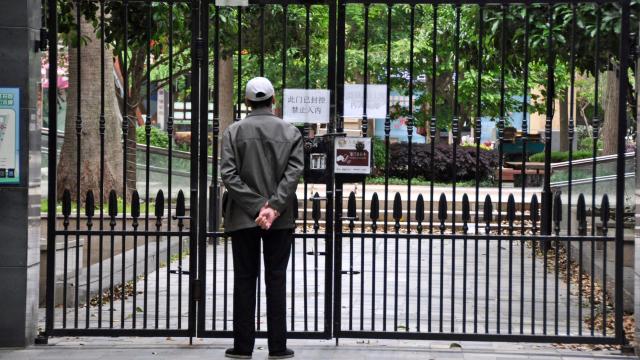After weeks of being locked inside their homes under strict COVID-19 restrictions, residents of the populous Chinese city Shanghai are using NFTs as an outlet to their growing frustrations. The main appeal of the non-fungible tokens is that they cannot be deleted as the government works overtime to censor any type of online content that voices its citizens’ criticism of the ongoing lockdown.
Shanghai’s 26 million residents have been confined to their homes since April 5 following a recent outbreak of the coronavirus, with some having difficulty accessing food and medicine while others were forced to evacuate their homes so that their buildings can be disinfected. Meanwhile, the government has beefed up efforts to censor any voiced frustrations online, and in group chats, removing videos and photos of lockdown restrictions. The Chinese government has one of the world’s largest online censorship apparatus known as the “Great Firewall of China,” which employs millions of people that track and block content.
As a result, some of Shanghai’s residents have turned to NFTs, creating hundreds of videos, photos and artwork that depict the ongoing restrictions in a way that cannot be censored by the government, Reuters reports. Unlike online content shared through Twitter (which is banned in China, but some are accessing through VPNs) or WeChat, the country’s leading messaging app, an NFT can’t be deleted once it is minted or uploaded to the blockchain.
Using NFT marketplaces like OpenSea, users have been able to permanently buy and sell the content through cryptocurrency. The content includes a widely popular six minute video titled, ‘Voices of April,’ which documents some of the challenges faced by residents of Shanghai under the strict government lockdown. When it first began spreading on social media in April, the government was deleting its digital trace on every platform. On April 23, a Twitter user by the name imFong announced that they had minted the video into an NFT and frozen its metadata, exclaiming that the “video will exist forever on the [Interplanetary File System],” according to Reuters. Additionally, 786 different items related to the video were also found on OpenSea by Monday.
China’s latest outbreak of the coronavirus saw tens of thousands of cases reported on a daily basis, and a total of 454 deaths. The country has had a zero tolerance policy towards COVID-19, which infected around 1.55 million in China during its initial onset in 2020.
